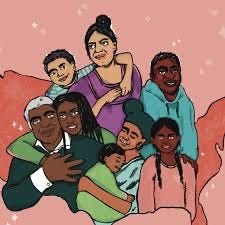A Personal Journey Through the Immigrant Experience
As I sit down to write this, the echoes of recent debates - about borders, deportations, and families torn apart - ring in my ears. Having worked with immigrants for years, I’ve seen the human side of these headlines up close. Today, on the heels of a week filled with global tensions and local struggles, I want to share a few stories that have shaped me. These aren’t just statistics or policy points; they’re the lives I’ve touched and been touched by.
One family stands out, though I’ll keep some details vague to protect their privacy. The mother, a green card holder, arrived legally and built a life here. Her husband, undocumented, crossed the border driven by a dream to support her. They have children - beautiful, innocent kids who deserve a stable home. But stability has been a cruel illusion. He’s been caught multiple times, dragged through deportation hearings, and even jailed for immigration-related offenses. Each time, he’s deported, only to sneak back, risking everything to be with his family. They’ve poured thousands into lawyers, chasing a legal path that slipped away when he overstayed early on. The process, slow and unforgiving, turned a hopeful start into a permanent barrier. I’ve watched him with his children, his eyes lighting up as he plays with them, his voice softening as he tells them stories. He’s self-employed, hustling to keep his family afloat without taking a dime from anyone. The money he earns is their lifeline - without it, they’d crumble. But the constant fear looms: when will the next raid come? When will he be torn away again? Speaking with him, you see a husband and father whose love for his family outweighs the terror of capture. Even the hardest hearts might soften, witnessing a man who cannot bear to be separated from those he holds dear.
Another memory lingers from my days doing medical reviews. A very pregnant woman sat across from me, visibly sick and terrified. She needed emergency surgery to save her baby’s life but hadn’t sought help earlier because, undocumented, she didn’t know Minnesota offers emergency medical coverage for all pregnant women, regardless of status. Through an interpreter, she repeatedly asked if I’d deport her. Despite my assurances—no, it’s illegal, I’d lose my job—she quietly cried throughout the interview. When I approved her for assistance and told her she could schedule surgery that day, she sobbed openly, hugging me in gratitude. Later, she brought a ceramic dish and a handmade potholder as thanks. I had to decline (workplace policy about accepting personal gifts). She persisted, returning the next day with homemade caramels for the office, insisting I share them. She took the time to find a way to express her gratitude while respecting company policy. That touched me deeply. I can’t say I’ve always learned positive lessons in this work - my pessimistic streak often kicks in - but stories like hers, and the hundreds I and others in my field carry, stay with me. They remind me of the resilience and humanity beneath the labels.
I was close friends at work with a DACA immigrant (her status is in jeopardy right now). She was one of the hardest working people I’ve ever met: reliable, consistent, deeply compassionate and committed to a service career. Highly intelligent - when I retired two years ago, she had been promoted many times, and was a social worker for families in jeopardy. We spoke frequently about her concern for herself and her American children. She was born in Mexico, but her parents brought her to the United States when she was a toddler. She speaks with an American accent. She went to American schools. Her family never brought her back to Mexico, and she has never left this country. It is a completely foreign land to her. And, as often happens, her parents built a real life in Minnesota. They both worked, and weren’t retired when I left (although they would be significantly older than me, and years past the age at which they could draw social security and pensions, were they able to draw these benefits). She has American siblings, nephews and nieces, cousins - an entire family network. I think about her sweet disposition and desire to be of service to others when I put a face to the complex immigrant experience. We are destroying lives, but the lesser understood impact is on the spaces the recently deported leave behind - the holes in their communities, where thriving businesses once stood, where well-adjusted children had two loving parents in the home, and a set of grandparents across the street. I don’t know what my friend would choose, if she is deported. She didn’t know, when we talked about it. Her oldest kid would be in high school right now. Imagine having to choose between bringing American children to a country that is foreign to her, or leaving them with family so they don’t lose all they’ve ever known.
These tales haunt me, especially when I hear friends or family echo harsh policies without knowing these faces. If only they could sit with this father or that mother, feel their fears and hopes. It’s a reminder that behind every immigration statistic is a human story - complex, painful, and profoundly real. I’ll share more in future posts, but for now, I invite you to reflect: who have you met that changed your perspective? Drop your thoughts below - I’d love to hear.


